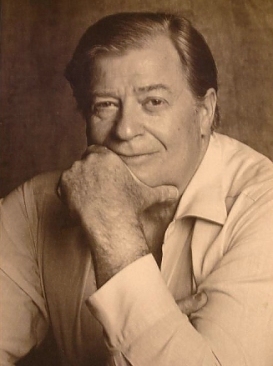
James Clavell was an Australian-born British writer, screenwriter, director, and World War II veteran and prisoner of war. Clavell is best known as the author of his Asian Saga novels, a number of which have had television adaptations. Clavell also wrote such screenplays as those for The Fly (1958), based on the short story by George Langelaan, and The Great Escape (1963), based on the personal account of Paul Brickhill. He directed the popular 1967 film To Sir, with Love, for which he also wrote the script.

A prisoner of war (POW) is a person who is held captive by a belligerent power during or immediately after an armed conflict. The earliest recorded usage of the phrase "prisoner of war" dates back to 1610.
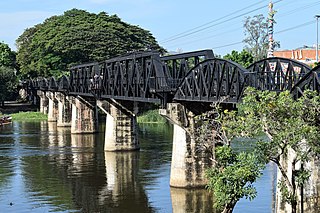
The Burma Railway, also known as the Siam–Burma Railway, Thai–Burma Railway and similar names, or as the Death Railway, is a 415 km (258 mi) railway between Ban Pong, Thailand, and Thanbyuzayat, Burma. It was built from 1940 to 1943 by South East Asian civilians abducted and forced to work by the Japanese and a smaller group of captured Allied soldiers, to supply troops and weapons in the Burma campaign of World War II. It completed the rail link between Bangkok, Thailand, and Rangoon, Burma. The name used by the Japanese Government was Tai–Men Rensetsu Tetsudō (泰緬連接鉄道), which means Thailand-Burma-Link-Railway.

Tai-Pan is a 1966 novel written by James Clavell about European and American traders who move into Hong Kong in 1842 following the end of the First Opium War. It is the second book in Clavell's Asian Saga, and the first to feature the fictional Struan family.

Changi Prison Complex, often known simply as Changi Prison, is a prison complex in the namesake district of Changi in the eastern part of Singapore. It is the oldest and largest prison in the country, covering an area of about 50 ha. Opened in 1936, the prison has a rich history.
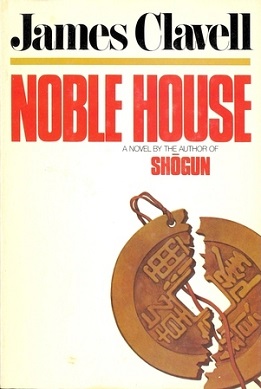
Noble House is a novel by James Clavell, published in 1981 and set in Hong Kong in 1963. It is the fourth book published in Clavell's Asian Saga and is chronologically the fifth book in the series. The "Noble House" in the title is the nickname of Struan's, the trading company first introduced in Clavell's Tai-Pan.
The Asian Saga is a series of six novels written by James Clavell between 1962 and 1993. The novels all centre on Europeans in Asia, and together explore the impact on East and West of the meeting of these two distinct civilizations.

King Rat is a 1965 American war film written and directed by Bryan Forbes and starring George Segal and James Fox. They play Corporal King and Flight Lieutenant Marlowe, respectively, two World War II prisoners of war in a squalid camp in Singapore. Among the supporting cast are John Mills and Tom Courtenay. The film was adapted from James Clavell's novel King Rat (1962), which in turn is partly based on Clavell's experiences as a POW at Changi Prison in Singapore in the latter part of the Second World War.

Sir Thomas Shenton Whitelegge Thomas was a British colonial administrator most notable for his role as Governor of the Straits Settlements in Singapore.
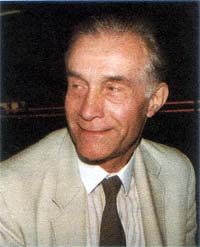
Stanley Warren was an English painter. He was a bombardier of the 15th Regiment of the Royal Regiment of Artillery who became known for the Changi Murals he painted at a chapel during his internment in Changi prison in Singapore during World War II.
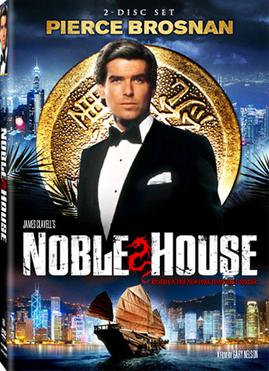
Noble House is an American action-drama television miniseries that was produced by De Laurentiis Entertainment Group, and broadcast by NBC in four segments on February 21–24, 1988. Based on the 1981 novel of the same name by James Clavell, it features a large cast headlined by Pierce Brosnan as business tycoon Ian Dunross and was directed by Gary Nelson. Due to time restrictions, several of the many subplots from the book were removed.
Danger Within is a 1959 British war film set in a prisoner of war camp in Northern Italy during the summer of 1943. A combination of POW escape drama and whodunit, the movie is based upon the 1952 novel Death in Captivity by Michael Gilbert, who had been a prisoner of war held by the Italians at PG 49 in Fontanellato.
Changi is a six-part Australian television miniseries broadcast by ABC TV in 2001. It originally aired from 14 October 2001 to 18 November 2001.

The Selarang Barracks incident, also known as the Barrack Square incident or the Selarang Square Squeeze, was a revolt of British and Australian prisoners-of-war (POWs) interned in a Japanese camp in Changi, Singapore.
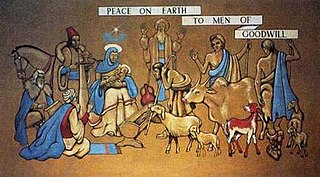
The Changi Murals are a set of five paintings of biblical themes painted by Stanley Warren, a British bombardier and prisoner-of-war (POW) interned at the Changi Prison, during the Japanese occupation of Singapore in the Second World War. His murals were completed under difficult conditions of sickness, limited materials and hardships. With a message of universal love and forgiveness, they helped to uplift the spirits of the POWs and the sick when they sought refuge in the prison chapel.

The lesser mouse-deer, lesser Malay chevrotain, or kanchil is a species of even-toed ungulate in the family Tragulidae.

Rat meat is the meat of various species of rat: medium-sized, long-tailed rodents. It is a food that, while taboo in some cultures, is a dietary staple in others. Taboos include fears of disease or religious prohibition, but in many places, the high number of rats has led to their incorporation into the local diets.
Changi University is the nickname given to a program of education for prisoners of war in the Changi Prisoner of War camp in Singapore during World War II. The program's aims were to raise the morale of the prisoners of war and mitigate boredom.

The Amazing Maurice is a 2022 animated fantasy comedy film directed by Toby Genkel and co-directed by Florian Westermann, from a screenplay by Terry Rossio, based on the 2001 novel The Amazing Maurice and His Educated Rodents by Terry Pratchett. The film stars Hugh Laurie, Emilia Clarke, David Thewlis, Himesh Patel, Gemma Arterton, Joe Sugg, Ariyon Bakare, Julie Atherton, Rob Brydon, Hugh Bonneville and David Tennant. The story follows Maurice, a streetwise ginger cat who befriends a group of talking rats by coming up with a money-making scam.















